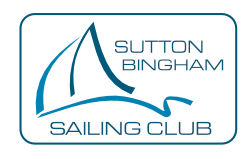(a message from Merv Clark)
I hope that you will agree my belief that the Club has a friendly and welcoming ethos, with the principal objective of enabling its members to have fun, both on and off the water. This same spirit characterises the committee, which seeks constantly to improve what the Club offers by addressing identified shortcomings and welcoming new ideas.
At the Club’s AGM two weeks ago, once again, a very talented and experienced committee was elected – for the most part, re-elected – but disappointingly there were no volunteers for any of the flag officer roles of Commodore, Vice-commodore or Rear-commodore. It may be that some members believe these appointments are too onerous, or they feel inadequately experienced or qualified to undertake them. As part of a further appeal for volunteers to come forward, let me explain what is involved in each role.
The Commodore is effectively the chairman of the Club and, as such, guides the meetings of the committee with the active involvement of the other members. As the Club’s senior representative, together with the Secretary, he or she is also a principal point of contact for outside organisations. The Commodore does not have to be an active sailor, nor steeped in Club traditions or history, as he or she is supported by a very experienced, supportive and enthusiastic team of committee members, a number of whom have previously fulfilled the role of Commodore. Each new incumbent brings his or her own style to the role and it is up to the individual to decide how hands-on or hands-off they wish to be.
The Vice-commodore is generally – but not necessarily – the Commodore-in-waiting and acts in support of the Commodore – perhaps in undertaking some delegated responsibilities.
In other larger clubs, there may be a number of rear-commodores, who are responsible for specific areas of operations. SBSC has just one, who is traditionally chairman of the Sailing Committee – the group that creates and maintains the Club’s calendar of events and generally oversees its sailing infrastructure, both the physical facilities and documentation, such as sailing instructions. Ideally, an active sailor – but not necessarily a racer – is required for this role, but the members of the Sailing Committee will fill any gaps in knowledge and work together to produce and support the programme.
The Club relies on the active involvement of its membership to function effectively and to populate its committees. Can I urge you, then, to think seriously about increasing your support to the Club by volunteering for one of these vacancies? I joined the committee in the mid-90s and it has provided so much enjoyment and friendship that I have been a member of it ever since. If you are interested, but have any questions or concerns, I would be happy to address them with you.
Your Club needs your help. Come and join us in ensuring its continuing success.
Thank you. Merv Clark
